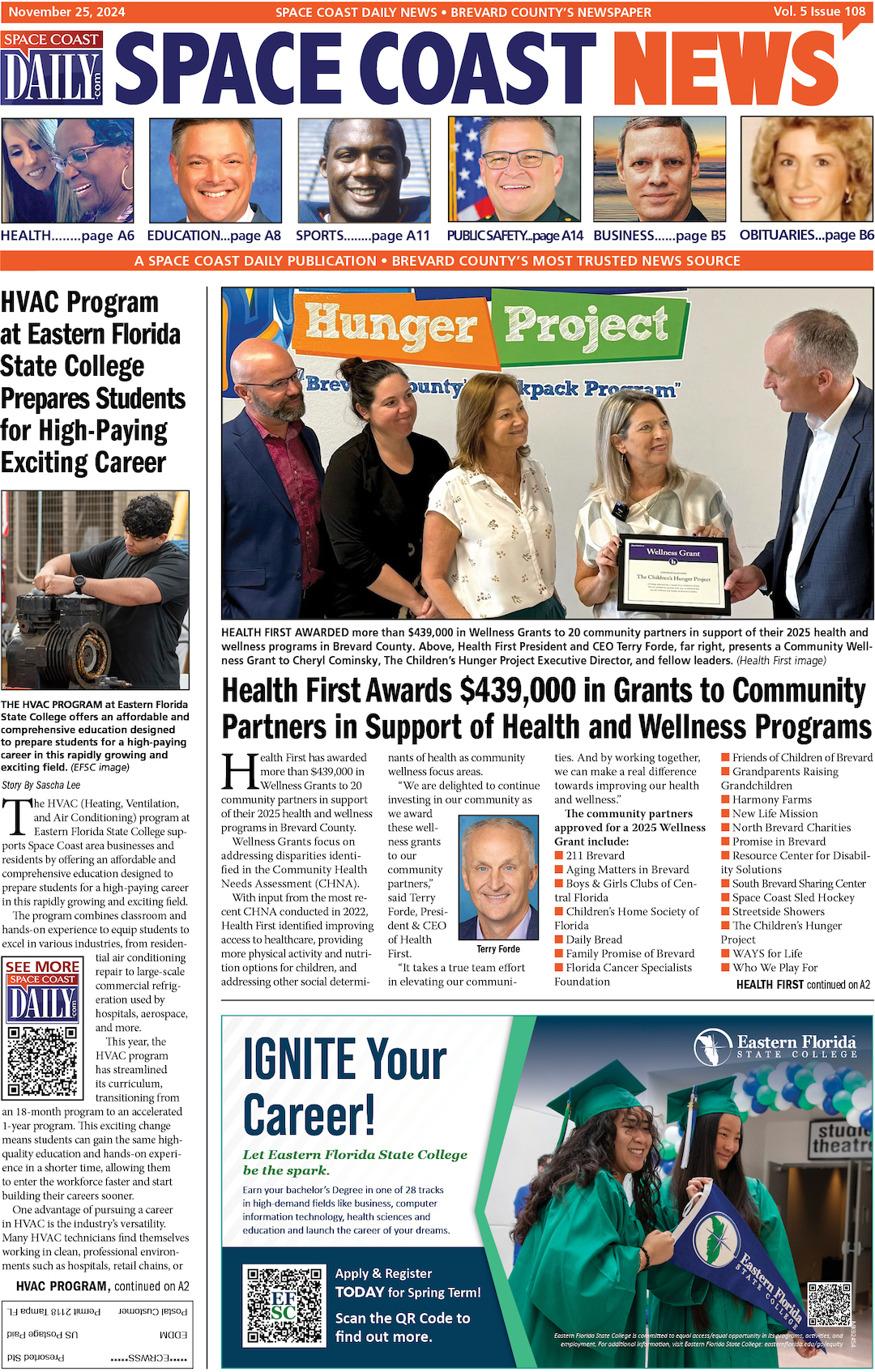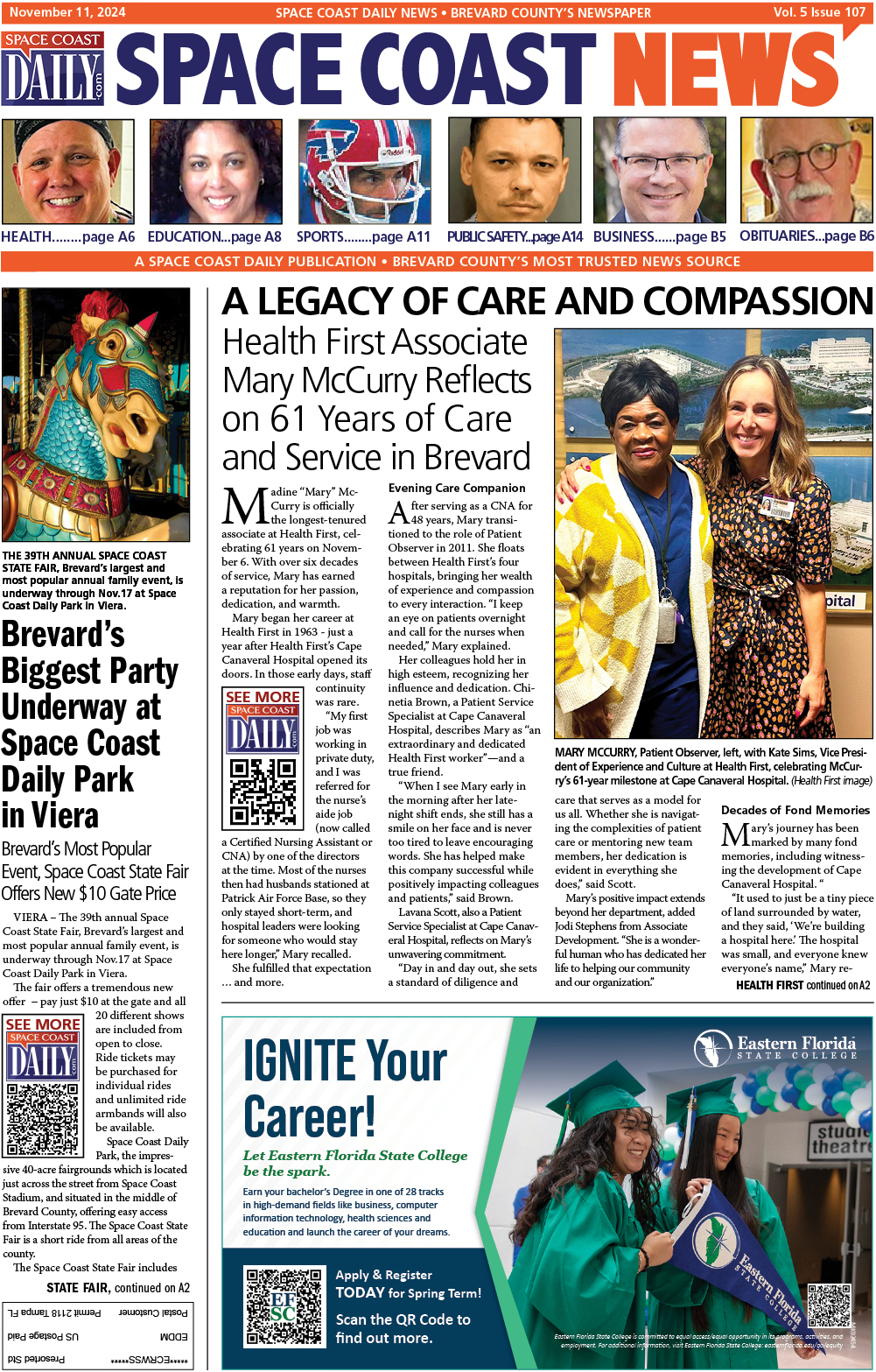Using Enterprise Marketing to Capture New Markets and Audience Insights
By Space Coast Daily // November 20, 2024

Enterprise marketing is a great way to go into new markets and get insights on different audiences. By using B2B marketing automation, enterprise content marketing and data driven insights companies can tailor their marketing to new customer bases and grow.
This allows businesses to not only increase brand awareness but also refine their strategy based on real audience data. As Philip Kotler says: “The aim of marketing is to know and understand the customer so well the product or service sells itself.”
Going into New Markets
To go into new markets companies need clear measurable goals that align with their overall business strategy. Having specific objectives – increasing brand awareness, capturing market share or driving product adoption in new geos – gives direction and purpose to all marketing activity. When marketing is aligned to business objectives it’s more effective and powerful.
For example a company going into a specific region to expand their product might focus on building local brand awareness and creating campaigns that speak to local needs. Clear goals keeps the whole organization on track so all marketing activity is purposeful and aligned to long term business goals.
Research the Market
Any market entry requires thorough market research to understand the landscape, growth potential and competitive dynamics in new regions. For companies using enterprise marketing and a B2B marketing automation platform this research provides the insight to make targeted data driven decisions.
Segmentation is key to messaging to specific customer groups. By segmenting by demographics, preferences and needs businesses can tailor their enterprise content marketing for each audience so every interaction feels relevant and valuable. Marketing automation tools also allow companies to get real time feedback on these segments so they can refine the messaging based on audience response. By using these insights businesses lay the foundation for successful market expansion with localised strategies that drive engagement.
Data Driven Audience Insights
Data driven audience insights are key to understanding new markets and refining marketing strategy. By collecting and analysing customer data companies can make better decisions and craft messaging that speaks to their target audience. Using a B2B marketing automation platform and advanced marketing automation tools companies can streamline data collection and get actionable insight to inform their strategy.
- Data Collection Methods:
- Surveys and Focus Groups: Get direct feedback on customer preferences and expectations. This is especially useful in new markets to understand cultural or behavioural nuances.
- Social Media Listening: Monitor conversations and sentiment around the brand, competitors and industry trends so businesses can adjust their messaging and approach.
- Web Analytics: Track user behaviour on the website to see what content, products or features are most popular and refine enterprise content marketing accordingly.
- Predictive Analytics:
- By using data from marketing automation companies can predict customer needs so they can personalise content better and anticipate demand. Predictive insights can prioritise leads based on behaviour so sales and marketing teams can focus on high value opportunities.
- Real Time Data Adjustments:
- With marketing automation companies can adjust campaigns based on real time data so messaging stays relevant as they learn more about their new audience. These adjustments improve engagement rates and refine strategy over time so businesses can stay responsive to changing market insights.
Using these insights companies can craft campaigns that speak to their audience’s needs and go into new markets successfully and build stronger customer relationships.
Content for Multiple Audiences
To go into new markets companies must create content that speaks to each audience’s culture, language and preferences. Personalisation goes beyond translation; it’s about crafting messaging that aligns with local values and needs so the brand feels familiar and relevant. Using enterprise content marketing and B2B marketing automation platforms companies can scale this approach while still tailoring content for each audience segment.
- Localised Content Creation:
- Craft messaging that reflects local cultural nuances and addresses specific regional pain points so the brand voice is in market.
- Automation allows companies to adjust content based on audience engagement so continuous improvement can be made to stay relevant.
- Increased Customer Engagement:
- Personalised content drives higher engagement as customers feel the brand gets them.
By personalising content for multiple audiences companies can build trust and connect with customers on a deeper level so they can go into new markets.
Omnichannel Marketing
An omnichannel approach is key to delivering a seamless customer experience across all channels from social media to email and in person. Using tools from an enterprise digital marketing agency and enterprise content marketing companies can sync up the messaging so customers have a consistent experience across touchpoints.
- Channel:
- Choose the right mix of digital and traditional channels for the region. An enterprise digital marketing agency can help with this as market habits vary (e.g. SMS in some regions vs email or WhatsApp in others).
- Brand Experience:
- One brand experience across all touchpoints. For example a customer who engages with a social media ad should get the same messaging if they visit the website or receive a follow up email. Enterprise content marketing is key here to keep it coherent and brand voice consistent across all channels.
- Real time updates across channels so messaging stays relevant as customers move from one platform to another.
Customer Feedback and Continuous Optimisation
To go into new markets you need to adapt to customer feedback in real time. Marketing automation companies can help with feedback collection and analysis so businesses can respond to changing needs.
- Feedback Loops: Collect insights through surveys, reviews and social listening to measure brand perception in new markets.
- Iterative Testing: Use feedback to refine campaigns. Automation allows real time adjustments so engagement improves by aligning to audience preferences.
By continuously optimizing based on feedback, companies strengthen customer connections and stay relevant in evolving markets.












